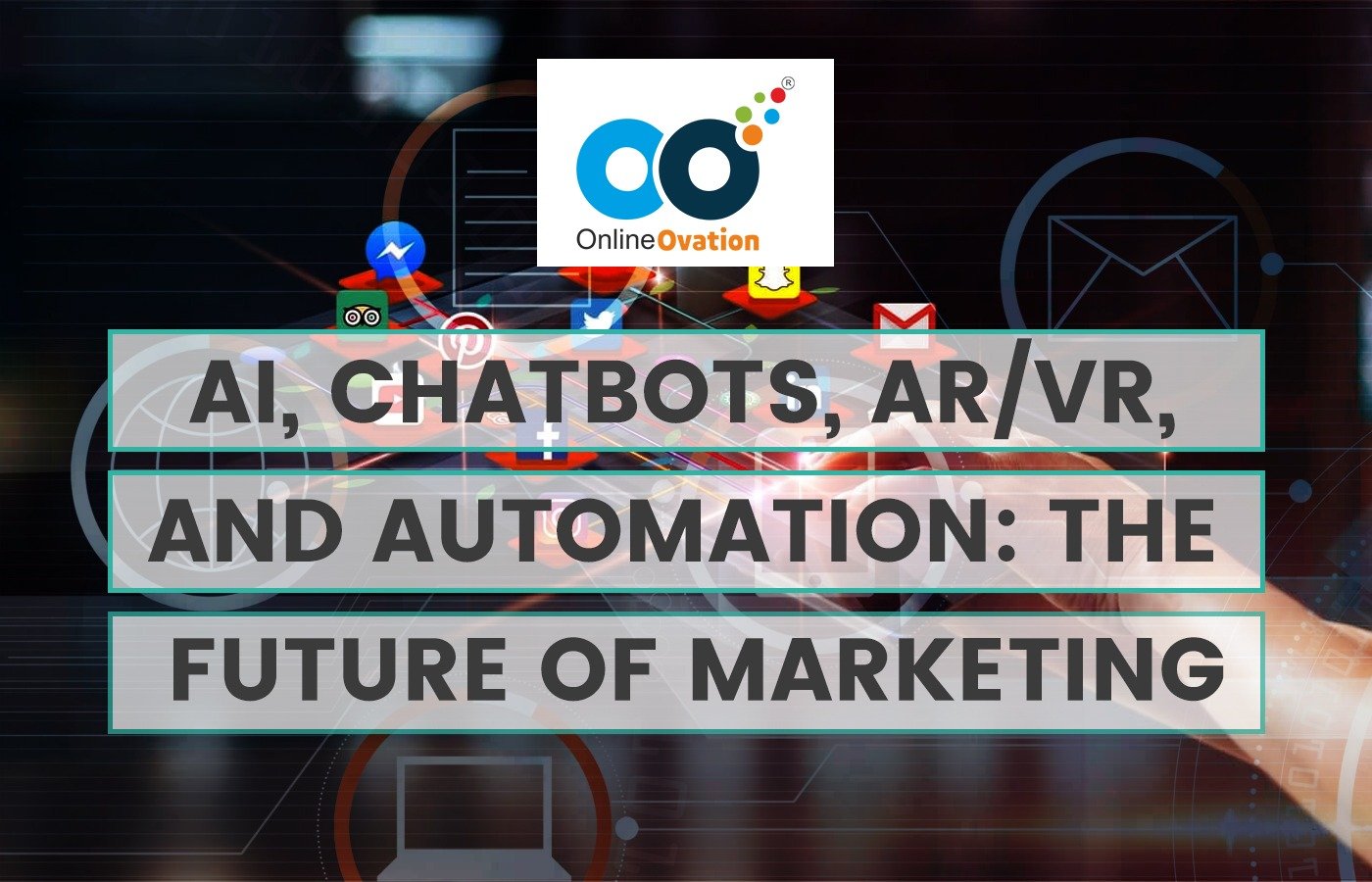
What Emerging Tech Should You Watch in Marketing ?
The marketing landscape is rapidly evolving, driven by technological advancements. Artificial Intelligence (AI), chatbots, Augmented Reality (AR), Virtual Reality (VR), and marketing automation are reshaping the way businesses engage with customers and drive growth. In this blog post, we'll explore these emerging trends and discuss how they can transform your marketing strategy.
1. AI: A Game-Changer in Marketing
AI is revolutionizing marketing by automating tasks, analyzing data, and providing personalized experiences.
Here's how AI is impacting the industry:
Predictive Analytics: AI can predict customer behavior and preferences, enabling targeted marketing campaigns. For instance, by analyzing past purchase history and browsing behavior, AI can identify potential upsell opportunities and recommend relevant products.
Personalized Marketing: AI-powered recommendation engines deliver personalized content and offers. This can be achieved through techniques like collaborative filtering, which suggests items based on similar preferences of other users.
Natural Language Processing (NLP): AI-enabled chatbots and virtual assistants can understand and respond to customer inquiries. NLP algorithms allow these systems to process and interpret human language, providing more natural and engaging interactions.
2. Chatbots: Enhancing Customer Service
Chatbots are becoming increasingly sophisticated, offering 24/7 support and improving customer satisfaction. Key benefits include:
Instantaneous Responses: Chatbots provide immediate answers to customer queries, reducing wait times and improving customer satisfaction.
Increased Efficiency: Automation reduces the workload on human customer service agents, freeing up their time to handle more complex issues or focus on strategic tasks.
Personalized Interactions: Chatbots can learn from customer interactions and tailor responses accordingly, providing a more personalized and engaging experience. For example, chatbots can access customer data to provide personalized recommendations or resolve issues quickly.
3. AR and VR: Immersive Marketing Experiences
AR and VR technologies are creating new opportunities for businesses to engage with customers in immersive ways. Examples include:
Virtual Try-Ons: Customers can try on products virtually before purchasing, reducing the risk of returns and enhancing the shopping experience.
Interactive Product Demonstrations: AR can provide interactive product demonstrations, allowing customers to visualize products in their own environments and better understand their features.
Virtual Events: AR and VR can be used to host virtual conferences, trade shows, and product launches, providing a more engaging and accessible experience for participants.
4. Marketing Automation Tools: Streamlining Your Workflow
Marketing automation tools help businesses save time, improve efficiency, and achieve better results. Key features include:
Email Marketing Automation: Automate email campaigns based on triggers and customer behavior, such as welcome emails, abandoned cart reminders, and personalized recommendations.
Social Media Automation: Schedule social media posts, track engagement, and analyze metrics to optimize your social media strategy.
Lead Scoring and Nurturing: Automatically score leads based on their behavior and engagement, and nurture them through the sales funnel with personalized content and offers.
Conclusion
AI, chatbots, AR, VR, and marketing automation are transforming the way businesses operate. By embracing these emerging technologies, you can gain a competitive advantage, enhance customer experiences, and drive growth. Stay informed about the latest trends and explore how these technologies can benefit your marketing strategy.


 Online Ovation
Online Ovation